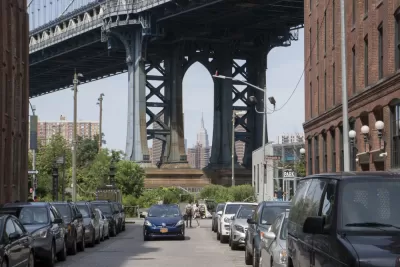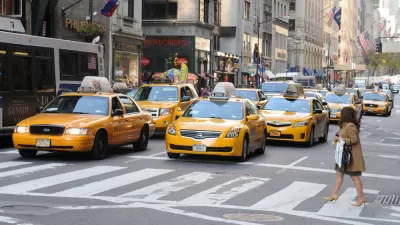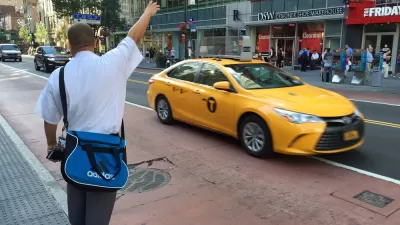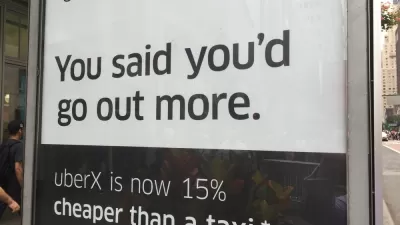The New York City set standards for transportation network companies, and now those companies are being a lot more selective about who they hire as drivers.

"Uber’s and Lyft’s once inexorable-seeming growth in New York City has ground to a halt," according to an article by Dan Rubinstein.
The evidence to back up that claim: "Uber stopped hiring new drivers in New York City on April 1. Lyft followed suit on April 19."
Rubinstein reports that the two companies have blamed the turn of events on new regulations in the city that set wage requirements and penalties for operating empty vehicles.
"The move suggests New York City’s new driver pay regulations are having some of their desired effect, by restricting the growth of the driver pool and limiting what many driver advocates characterize as an over-saturated market," according to Rubinstein.
FULL STORY: Uber and Lyft stop accepting new drivers in New York City

Study: Maui’s Plan to Convert Vacation Rentals to Long-Term Housing Could Cause Nearly $1 Billion Economic Loss
The plan would reduce visitor accommodation by 25,% resulting in 1,900 jobs lost.

North Texas Transit Leaders Tout Benefits of TOD for Growing Region
At a summit focused on transit-oriented development, policymakers discussed how North Texas’ expanded light rail system can serve as a tool for economic growth.

Why Should We Subsidize Public Transportation?
Many public transit agencies face financial stress due to rising costs, declining fare revenue, and declining subsidies. Transit advocates must provide a strong business case for increasing public transit funding.

How to Make US Trains Faster
Changes to boarding platforms and a switch to electric trains could improve U.S. passenger rail service without the added cost of high-speed rail.

Columbia’s Revitalized ‘Loop’ Is a Hub for Local Entrepreneurs
A focus on small businesses is helping a commercial corridor in Columbia, Missouri thrive.

Invasive Insect Threatens Minnesota’s Ash Forests
The Emerald Ash Borer is a rapidly spreading invasive pest threatening Minnesota’s ash trees, and homeowners are encouraged to plant diverse replacement species, avoid moving ash firewood, and monitor for signs of infestation.
Urban Design for Planners 1: Software Tools
This six-course series explores essential urban design concepts using open source software and equips planners with the tools they need to participate fully in the urban design process.
Planning for Universal Design
Learn the tools for implementing Universal Design in planning regulations.
City of Santa Clarita
Ascent Environmental
Institute for Housing and Urban Development Studies (IHS)
City of Grandview
Harvard GSD Executive Education
Toledo-Lucas County Plan Commissions
Salt Lake City
NYU Wagner Graduate School of Public Service





























